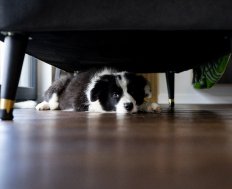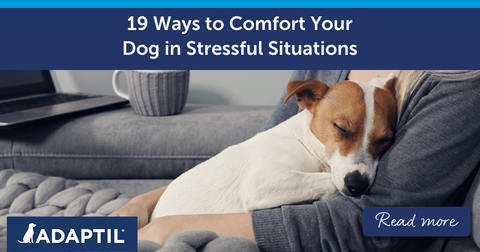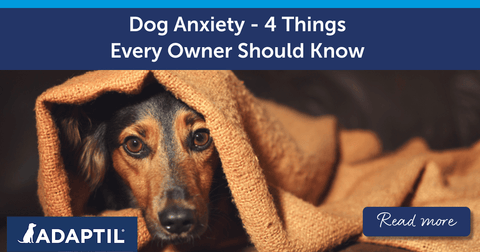Why do Dogs Dig in their Beds and Circle? A Pooch's Point of View
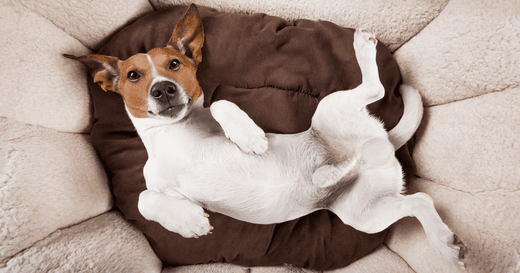
Have you ever wondered why we dogs appear to be digging up our beds and turning in a circle before settling down? Just like humans, dogs will often have a pre-sleep ritual - I know I like to have my pillows 'just so' when I'm preparing my special den for sleep!
Although there hasn't been much research into this particular area of natural dog behaviour, I thought I'd share my pooch perspective on why I perform this routine before bed! Much of this activity has been inherited from our ancestors so it comes very naturally to us.
Why do Dogs Circle Before Lying Down?
Long before dogs were given the lovely comfy beds that their human best friends provide for them today, we would have been sleeping in the great outdoors (which doesn't sound as much fun as we had to be on our guard all the time!). Here are some of the reasons we turn in circles in our sleeping spot:
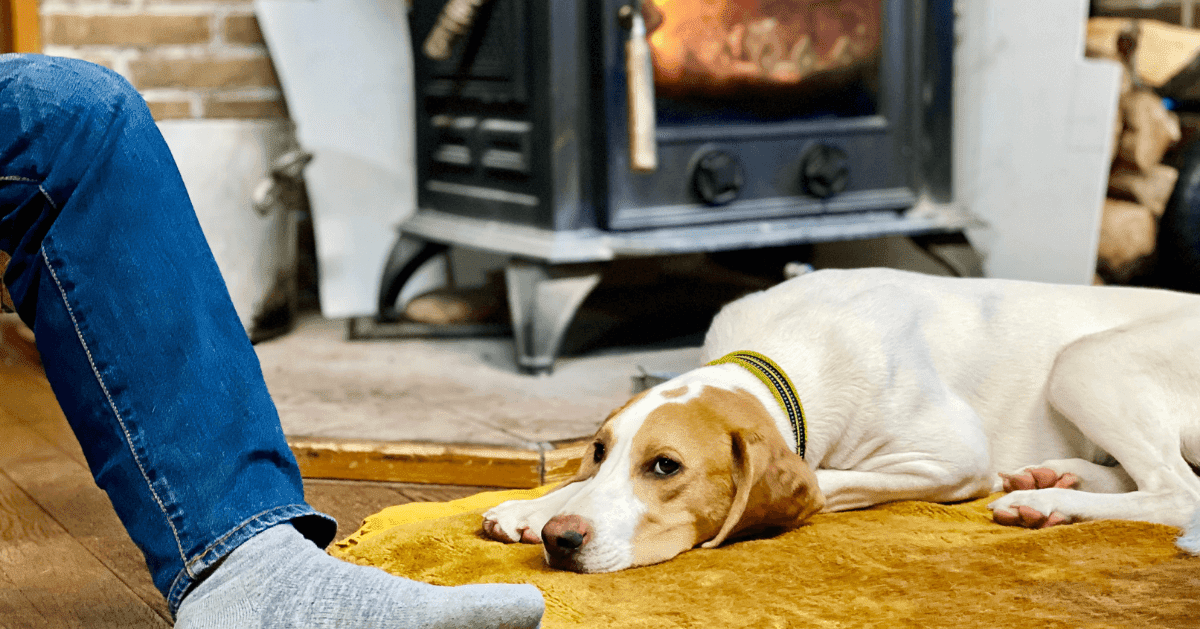
- Circling was a means of checking the area and establishing a safe and comfortable spot, ensuring that we've surveyed the spot from all angles and felt safe from an attack. Such an important behaviour tends to persist for generations as staying safe is so important for our survival.
- It is also thought that our doggy ancestors liked to check the direction of the wind before settling, so they could sleep with their noses pointing into the wind and could quickly pick up any threatening scent - wolves are still thought to do this according to some wildlife scientists. I feel pretty chilled out in my doggy den as the only smells I need to worry about are the delicious smells of the roast my human is cooking (I'll get some if I'm lucky, yum!). Also, my owner has plugged in an ADAPTIL Calm Home Diffusernear my crate which helps me feel more relaxed and secure.
- In the wild, going round and round before lying down may also have been a way of surveying the others, to check they are accounted for before settling down. The protection of the pack was essential to my ancestors so they always surveyed the other members before bed; my human family is kind of like my very own pack so I like to see where they are before I settle in for my nap.
Why Do Dogs Dig in Their Beds?
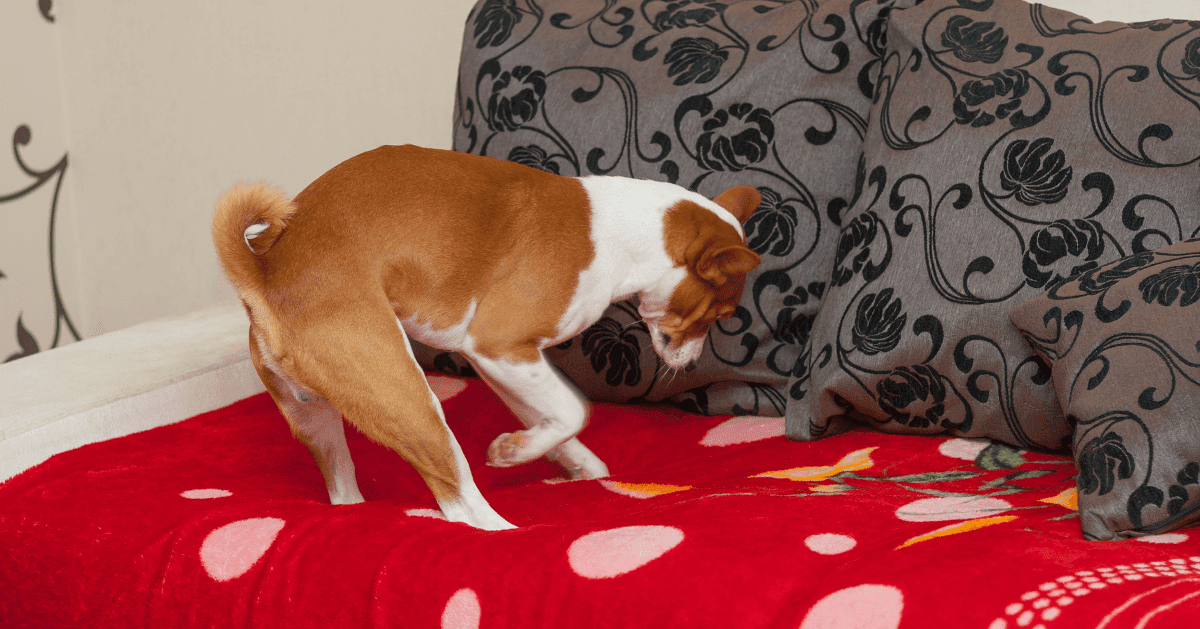
I like to have a good dig or trample around my bed before settling down for the night, or even for my afternoon nap time - we pooches just love our sleep! Here are some reasons why we like to do this little routine as we create a sleeping space just for us:
- When we were in the wild, trampling and area would help drive out any other animals occupying the space such as rodents, insects or even snakes as well as uncomfortable items like prickly under-bushes or rocks - and squashing down the long grass. Although these things aren't usually hiding in the comfy beds created by our humans, the routine is entrenched in our activity as it was passed down by our ancestors. It's a bit like how the human kids like to check under the bed for monsters, I know I like to be sure there's nothing uninvited hiding in my bedding!
- This activity also marks out the area with our scent, helping us feel more secure and communicate that this is our chosen resting spot. Did you know that we have scent glands on our paws? Nowadays, us pooches often scratch, dig or circle more when we have a new bed or it has been freshly laundered so that we make it smell of us. I'm good friends with the pooch who lives two doors down and he doesn't really like the feel or smell of freshly laundered bedding so he spends a long time digging at it before he'll settle.
- In the wild, our ancestors would sometimes dig their sleeping area depending on the temperature, for example creating a more enclosed space in winter or a wide space of cooler earth in the summer. Our ancestors would often make themselves a bit of a nest with leaves and dirt through this scraping and digging action.
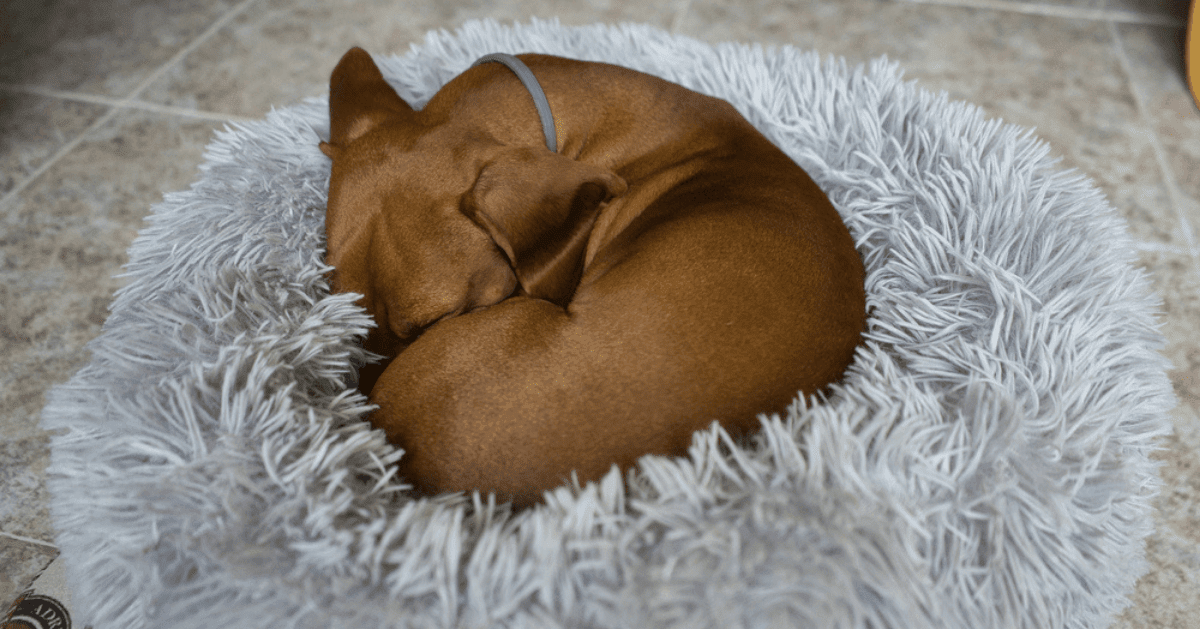
Get to Know our Circling and Scratching Habits!
We often do the action of circling and digging at the same time, right before we settle down for a lovely snooze - and this is a normal natural behaviour. However, it's always good to keep an eye out for any changes. If a pooch is circling more often than usual (or at other times when they're not getting ready to sleep) as this would suggest that they're finding it difficult to get comfortable, so contact your vet as they may be in pain or have an underlying medical reason for this change.
ADAPTIL Back To Nature
Take a look at the ADAPTIL's Back to Nature video, made with the documentary makers Fougea, it shows dog origins through to modern life.
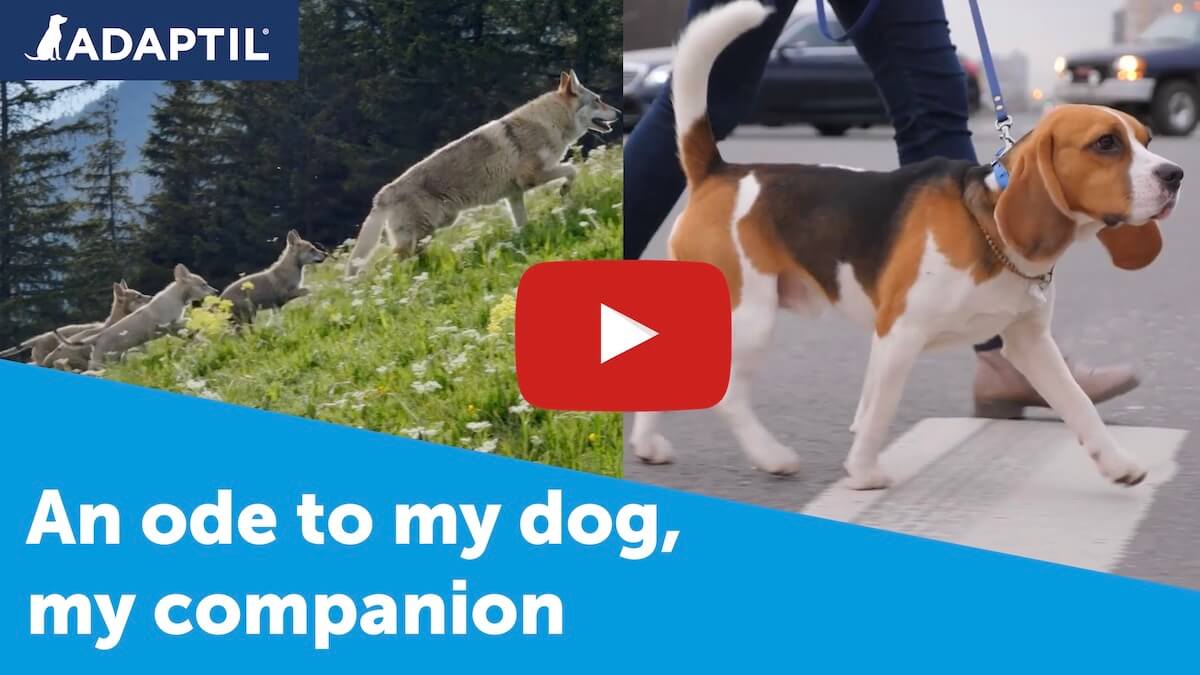 An ode to dog origins, friendship and challenges of modern life. Dogs deserve support to cope with our modern environment.
An ode to dog origins, friendship and challenges of modern life. Dogs deserve support to cope with our modern environment.


